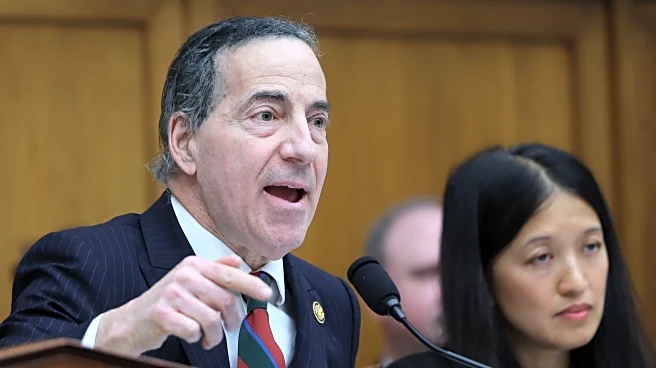What's Happening?
During the U.S. Open, American tennis player Taylor Townsend and Latvian player Jelena Ostapenko engaged in a heated exchange following their second-round match. Ostapenko, who lost the match, confronted Townsend about not apologizing for hitting a net cord, a legal shot in tennis. Townsend responded that an apology was unnecessary, leading to further tension. Ostapenko allegedly accused Townsend of having 'no education,' to which Townsend retorted that Ostapenko should 'learn how to take a loss better.' Townsend, who advanced to the third round, later commented in an ESPN interview that such incidents occur when players are upset after losing. She also mentioned that Ostapenko's remarks could be perceived as having racial undertones, although she did not explicitly attribute such intentions to Ostapenko.
Why It's Important?
The incident highlights ongoing issues of sportsmanship and racial sensitivity in professional sports. Townsend's response to Ostapenko's comments underscores the challenges athletes face regarding respect and conduct on the court. The exchange has sparked discussions about the implications of language used in competitive settings, particularly concerning racial undertones. This event may influence how athletes and sports organizations address and manage conflicts and communication during high-stakes competitions. It also raises awareness about the importance of cultural sensitivity and respect among international athletes.
What's Next?
As Townsend progresses in the tournament, the focus will likely shift to her performance in upcoming matches. Ostapenko's public denial of any racist intent may lead to further scrutiny and discussions about the incident. The U.S. Open and tennis organizations might consider reviewing their policies on player conduct and communication to prevent similar occurrences. Additionally, the incident could prompt broader conversations about racial dynamics in sports, potentially influencing future interactions and policies.
Beyond the Headlines
The confrontation between Townsend and Ostapenko may have deeper implications regarding racial stereotypes and perceptions in sports. Townsend's acknowledgment of the stigma associated with being uneducated in her community highlights the broader societal issues that can surface in competitive environments. This incident could contribute to ongoing dialogues about race, identity, and representation in sports, encouraging athletes and organizations to foster more inclusive and respectful environments.










